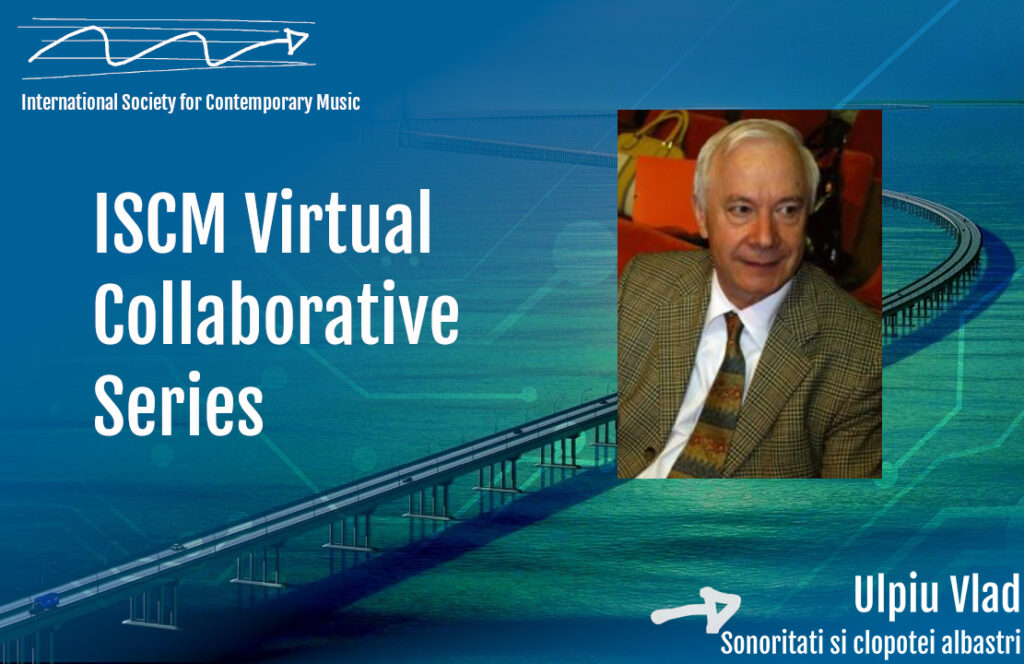Ulpiu Vlad: Sonorități şi clopoței albaştri

Ulpiu Vlad (b. January 27, 1945, Zărneşti) is a Romanian composer of orchestral, chamber, choral, and vocal works that have been performed throughout Europe. Prof. Vlad initially studied music theory with Filaret Barbu and oboe with Pavel Tornea at the Music High School in Bucharest from 1958–64. He then studied with Tudor Ciortea, Dan Constantinescu, Octavian L. Cosma, Victor Giuleanu, Myriam Marbe, Aurel Stroe, Zeno Vancea, and Anatol Vieru at the National University of Music in Bucharest, where he graduated in 1971. He also attended composition seminars with Virgilio Mortari at the Accademia di Santa Cecilia in Rome in 1971–72. His honors include a prize for oboe at the Festival of Young Performers of Romania (1964), the Special Prize from the National University of Music in Bucharest (1971), a Second-Class Medal for Distinction in Culture (1983), and the George Enescu Prize of the Romanian Academy (1985). He has also earned First Prize from the Romanian Composers Union at the National Song of Romania festival (1987) and four prizes from the Romanian Composers Union (1990, 1995, 2000, 2003) and was named an Officer of the Order of Cultural Merit by the government of Romania (2004). Prof. Vlad is also active in other positions. He worked as a researcher in Romanian folk music at the National University of Music in Bucharest from 1971–77 and at the Ethnology and Dialectology Research Institute in Bucharest from 1977–80. In addition, he served as editor of the publisher Editura Muzicală from 1980–84 and as its manager from 1984–92. He served as director of the music department at the Romanian Ministry of Culture in Bucharest in 1992–93 and has taught as a professor at the National University of Music in Bucharest since 1993.
The composer has offered the following comments about his 2014 Sonorități şi clopoței albaştri (Blue Sounds and Bells) for solo violin: “This is one of my less innovative, but more expressive works. I believe in a music that resembles Nature, a music in which both the general structure and the most subtle details are governed by general laws, strongly connected with the performative act. What is essential is the soul of music, a result of its virtues. The privilege of working with a superior energy – of creating generative, additive and communicative systems – exists deep within us, and we must discover and activate it.”
Performed by Luosha Fang
